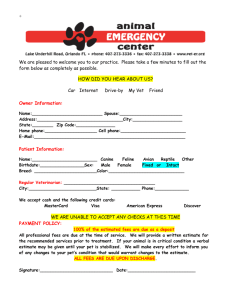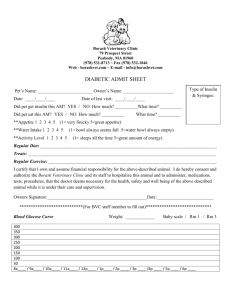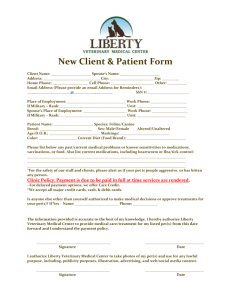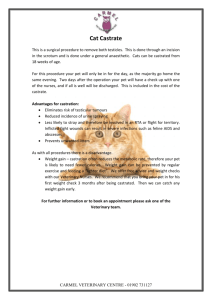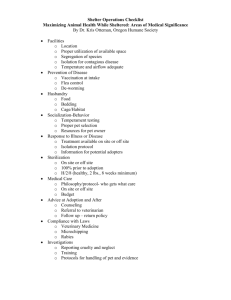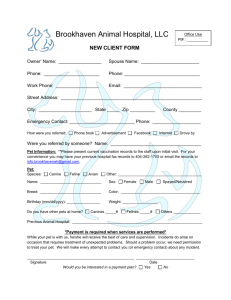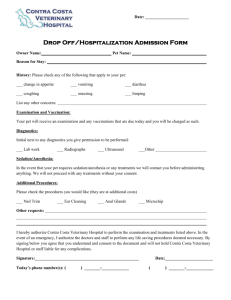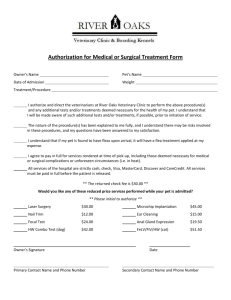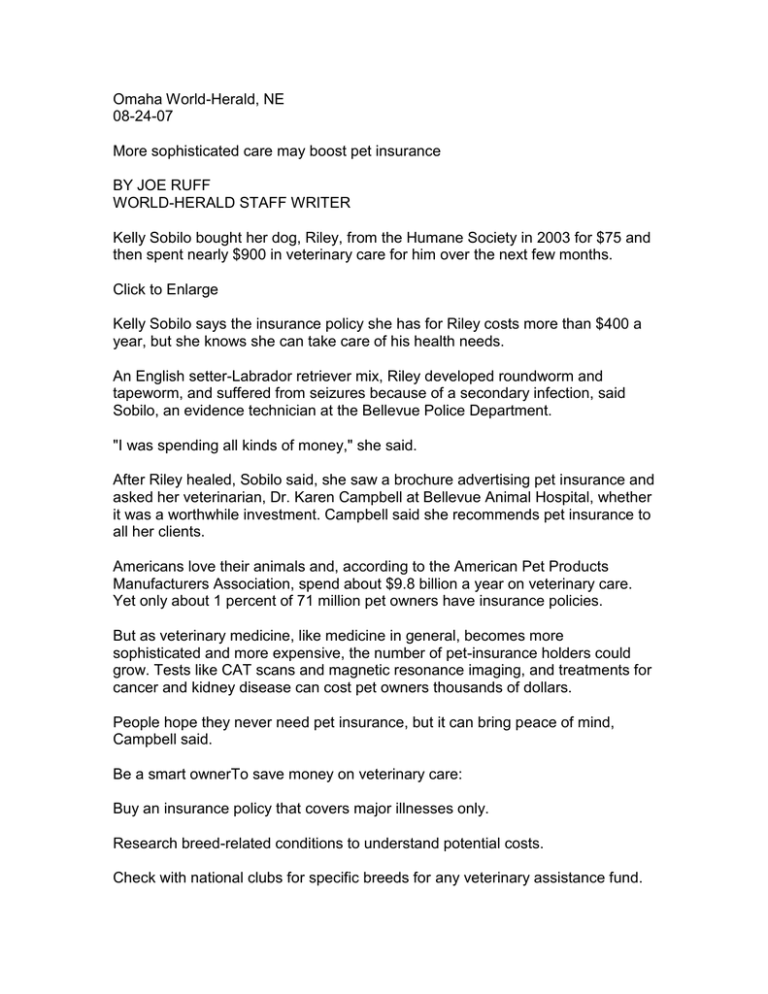
Omaha World-Herald, NE
08-24-07
More sophisticated care may boost pet insurance
BY JOE RUFF
WORLD-HERALD STAFF WRITER
Kelly Sobilo bought her dog, Riley, from the Humane Society in 2003 for $75 and
then spent nearly $900 in veterinary care for him over the next few months.
Click to Enlarge
Kelly Sobilo says the insurance policy she has for Riley costs more than $400 a
year, but she knows she can take care of his health needs.
An English setter-Labrador retriever mix, Riley developed roundworm and
tapeworm, and suffered from seizures because of a secondary infection, said
Sobilo, an evidence technician at the Bellevue Police Department.
"I was spending all kinds of money," she said.
After Riley healed, Sobilo said, she saw a brochure advertising pet insurance and
asked her veterinarian, Dr. Karen Campbell at Bellevue Animal Hospital, whether
it was a worthwhile investment. Campbell said she recommends pet insurance to
all her clients.
Americans love their animals and, according to the American Pet Products
Manufacturers Association, spend about $9.8 billion a year on veterinary care.
Yet only about 1 percent of 71 million pet owners have insurance policies.
But as veterinary medicine, like medicine in general, becomes more
sophisticated and more expensive, the number of pet-insurance holders could
grow. Tests like CAT scans and magnetic resonance imaging, and treatments for
cancer and kidney disease can cost pet owners thousands of dollars.
People hope they never need pet insurance, but it can bring peace of mind,
Campbell said.
Be a smart ownerTo save money on veterinary care:
Buy an insurance policy that covers major illnesses only.
Research breed-related conditions to understand potential costs.
Check with national clubs for specific breeds for any veterinary assistance fund.
Create an emergency fund in an interest-bearing account.
Ask veterinarians about payment plans for any expensive treatments.
Find a subsidized veterinary clinic.
Ask your vet to submit an assistance request to the American Animal Hospital
Association's AAHA Helping Pets Fund.
Source: Financial Planning Association in Denver
VPI Pet Insurance of Brea, Calif., which writes about 75 percent of all policies in
the country, said major medical coverage for a dog costs about $25 a month.
About $8 a month more would cover routine care such as yearly examinations,
vaccinations, tick prevention and dental cleanings, said VPI spokesman Brian
Iannessa.
There are $50 deductibles and a schedule of reimbursements for major
treatments that can pay up to 90 percent of expenses, Iannessa said. Routine
care is fully reimbursed without a deductible.
VPI also covers cats at about $20 a month. Insurance for exotic pets - from birds
to hedgehogs to iguanas - can cost between $7 and $10 a month, Iannessa said.
"It's a lot less than some people's cable bill," Iannessa said.
Pet insurance might not be for everyone, however.
Policies often will not cover breed-related health complications and pre-existing
conditions. In addition, many animals stay healthy most of their lives, said Dr. Jay
Jesske, a partner and veterinarian with American Animal Hospital in Omaha.
"If your pet comes in once a year until geriatric, I don't know if paying the
premium is worth it," Jesske said.
Dr. Kim Langholz, a veterinarian at the Lloyd Veterinary Teaching Hospital
at Iowa State University in Ames, said people should carefully study any
insurance policy before signing up. "You need to do your homework and
determine if it's best for you," she said.
In a recent article, the national Financial Planning Association said people might
want to consider keeping premiums relatively low by paying for a policy that
covers only major illnesses.
Another option is creating a pet emergency fund in an interest-bearing account
and depositing at least $400 a year, the association said. In 10 years, a $4,000
account would be available to help pay for major treatments.
There is room for growth in the pet insurance industry.
VPI has about 450,000 policies in force and there are eight or nine other
companies in the pet insurance business, including Pets Best Insurance of Boise,
Idaho, Iannessa said.
Sobilo said buying pet insurance was a good decision.
About two years ago, Riley developed a growth on one leg. Surgery cost several
hundred dollars, and Sobilo was reimbursed for most of the cost. It was not
cancer, but the growth had gotten bigger and might have developed into cancer,
Sobilo said.
Sobilo said her annual premiums to VPI Pet Insurance are more than $400. That
level of insurance covers yearly examinations, vaccinations, tick prevention and
dental cleanings, as well as major medical needs, Sobilo said.
"I'd rather have the insurance and be able to take care of my dog than not be
able to afford it."
Contact the Omaha World-Herald newsroom
Copyright ©2007 Omaha World-Herald®. All rights reserved. This material may
not be published, broadcast, rewritten, displayed or redistributed for any purpose
without permission from the Omaha World-Herald.

